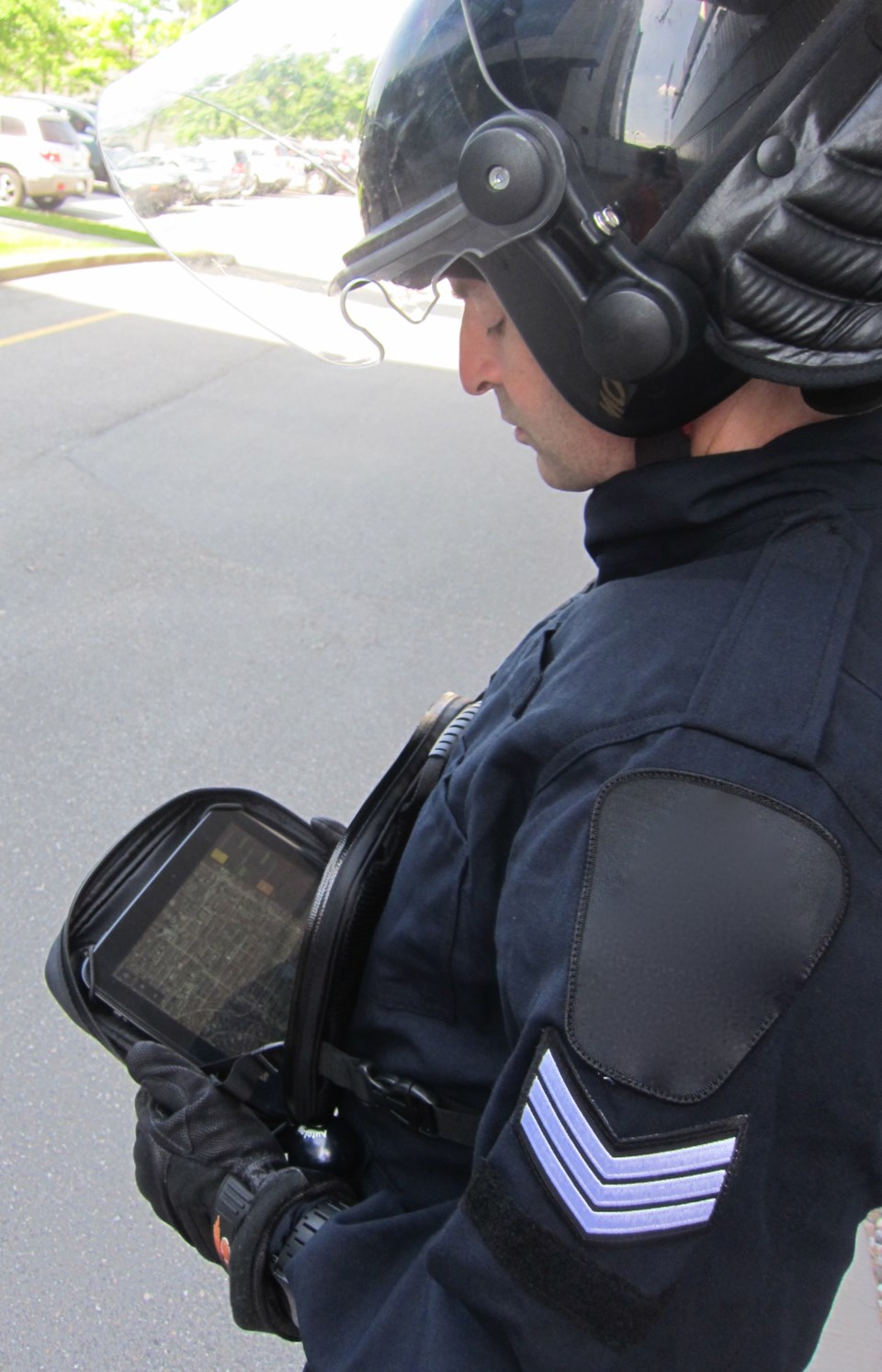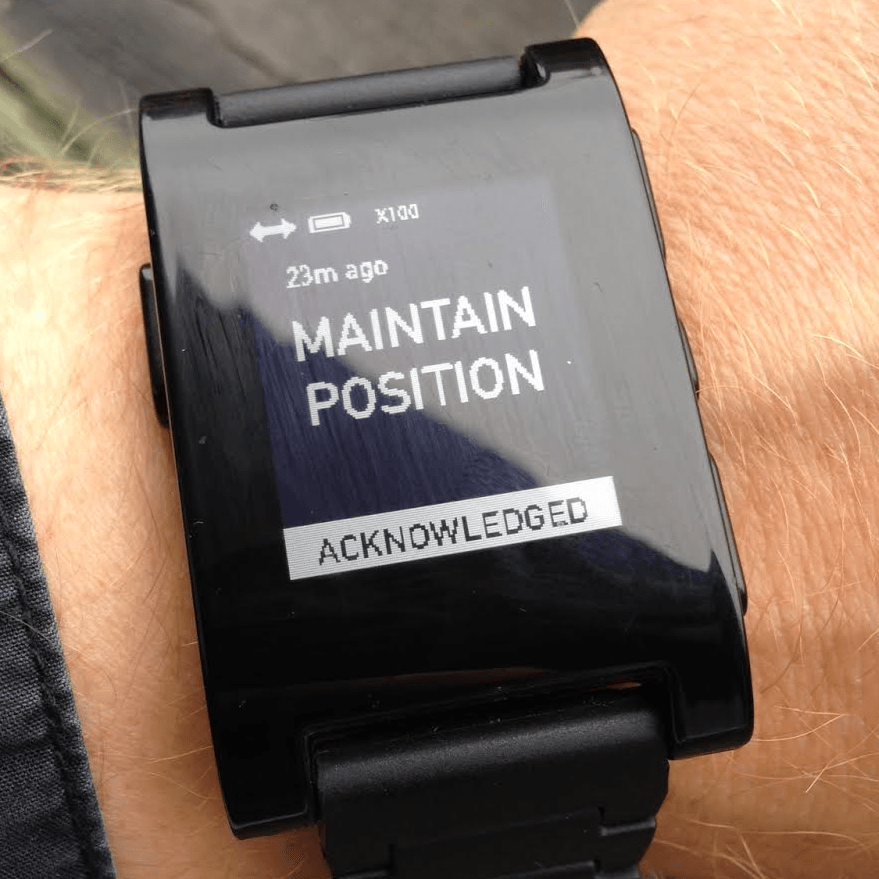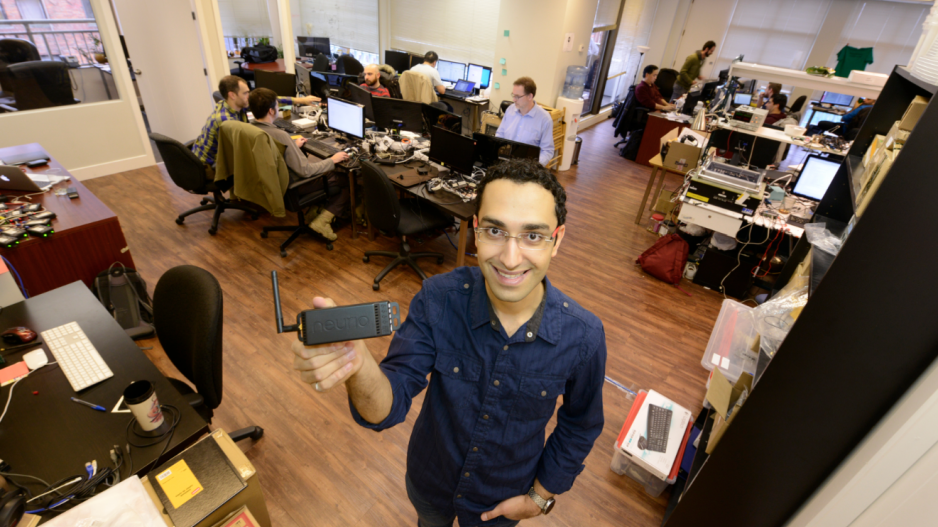Whether fireworks are crackling in the sky during Vancouver’s Celebration of Light or rioters are taking to the streets during a Stanley Cup loss, police officers have few options when communicating with their superiors.
“They’re relying on radio almost exclusively,” said Mike Morrow, CEO of CommandWear Systems. “They’re not able to communicate effectively in the field among their teams.”
But Vancouver-based CommandWear has developed a real-time GPS tracking technology for emergency responders that allows users to download an app onto a smartphone, smartwatch or tablet to share location information.
Police commanders can track the movements of officers and send digital messages no matter the device, while officers no longer have to rely on a radio and street signs to let their supervisor know where they are.
After running field tests with Vancouver police earlier this year, the department will be deploying the technology for the city’s major events in 2015.

CommandWear’s solution to this old-school communications problem is one of 38 remedies Telus (TSX:T) is offering in its IoT Marketplace, which launched December 10.
The Internet of Things (IoT) refers to intelligent computer systems transmitting data between each other and responding accordingly in real time based on the information they share. No human interaction is required.
For example, if a restaurant wants to improve its operations, it can contact Telus’ IoT Marketplace to find a company that can install interactive sensors on everything from drains to fridge doors and then use computer programs to pinpoint inefficiencies.
Shawn Sanderson, Telus’ vice-president of IoT, said the telecom giant is well positioned to serve as “the glue that combines the whole IoT ecosystem together” due to its infrastructure and expertise.
“Our goal here is not to build everything. It’s impossible because of how fast the industry is moving,” he said.
“It’s really to pick the best solutions that are available. Some of them are big companies, some of them are small companies.”
Canadians, however, have been slow to embrace IoT solutions.
A June survey from IDC showed just 6% of businesses had adopted IoT technologies as of 2013. But Sanderson said Telus anticipates the demand will go up, which is why it’s banking on the marketplace.
The IDC report also found an additional 7% of companies are preparing to implement the technology in 2014, while another 30% are expected to adopt the technology in the next two years.
“It’s just inevitable,” said Ali Kashani, co-founder and chief technology officer at Neurio.

His company originally started as a University of British Columbia spinoff nine years ago, specializing in energy-efficient devices. But Neurio shifted to smart-home technologies using IoT when the team saw the potential applications from the data they had collected from their original devices.
Instead of relying on individual sensors to monitor appliances and reduce power consumption, Neurio has developed a central hub that connects to a home’s breaker panel.
“There’s no intelligence in the breaker panel, so we become the intelligence and basically monitor the patterns in the panel to figure out what the home is doing, if anybody is doing something that we need to let them know about, like leaving an oven on by accident or using energy in a way that is inefficient,” Kashani said.
The company ranked in the top six of the Cisco (Nasdaq:CSCO) Internet of Things Challenge this past fall. And on December 16, Neurio announced it had raised $1.5 million in seed funding during a financing round led by Business Development Bank of Canada Venture Capital.
Kashani said the growing demand for IoT solutions has allowed Neurio to double its workforce to 32 employees the past two months, while the company is looking to hire another dozen.
“The whole robotic side of the world is something that is about to happen, except it’s wrapped in IoT,” he said.
“It’s really the beginning of this [artificial] intelligence showing up in our physical world.”




